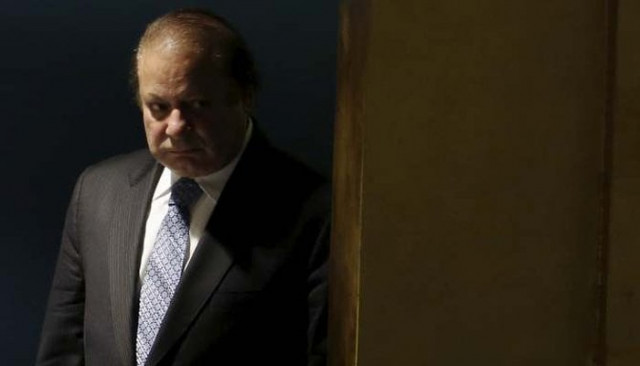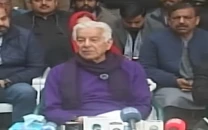LHC forms full bench against Sharif’s conviction
Petitioner contends NAB law under which accountability courts work is a dead law

Petitioner contends NAB law under which accountability courts work is a dead law. PHOTO: REUTERS/ FILE
The full bench will be headed by Justice Shams Mehmood Mirza while Justice Sajid Mehmood Sethi and Justice Mujahid Mustaqeem Ahmed will be its other two members.
During the previous proceedings, the LHC’s Justice Ali Akbar Qureshi had referred the petition for constituting a full bench to the LHC top judge. The petition was moved by the Lawyers Foundation for Justice through Advocate A K Dogar.
Dogar in his main petition questioned the NAB Ordinance 1999 and functioning of the courts under it.
Sharif moved to PIMS after health complication
He said NAB court which convicted the Sharifs had no jurisdiction to decide the matter as the law under which it had been functioning had lapsed long ago. He requested the court to suspend operation of the accountability court’s decision as the court had been functioning under a non-extent law.
He said former military dictator General Pervez Musharraf promulgated the NAB ordinance to arrest the politicians. Musharraf took the charge in Oct 1999 while the NAB law came into being in Nov 1999, just one month.
He said the NAB Ordinance 1999 contends that the ordinance was promulgated by a military dictator under Provisional Constitutional Order (PCO) No 1 and order No 9 of 1999.
The lawyer argued that under Article 270-AA of the Constitution through 18th amendment, the PCO No1 of 1999 was declared without lawful authority and of no legal effect.
PML-N barely holds Punjab bastion
Order No 9, he said, was promulgated only to amend the PCO No 1 of 1999 with the insertion of section 5A (1) in it to the effect that limitation of 120 days prescribed under Article 89 of the Constitution to any ordinance by the president will not be applicable to the laws made under PCO No 1 of 1999.
The lawyer contended that as the PCO No 1 was declared without lawful authority and of no legal effect, the amendments in it made under order No 9 of 1999 would also lapse and therefore, the limitation period of 120 days prescribed under Article 89 would be applicable to the NAB ordinance.
He said certain laws which were still enforced, shall continue to remain enforced unless amended by the competent legislation under sub-article 2 of Article 270-AA of the Constitution.
Claiming that the NAB ordinance has ceased to be the law and become non-existent and a dead letter, he requested the court to set aside all those proceedings being carried out by the NAB courts under the ordinance.



















COMMENTS
Comments are moderated and generally will be posted if they are on-topic and not abusive.
For more information, please see our Comments FAQ